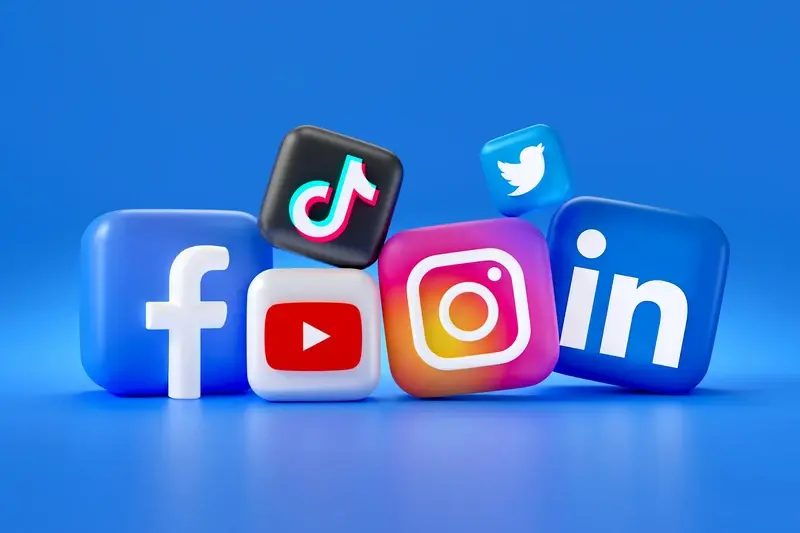How Much Should I Budget For App Marketing?
Here's a shocking truth that'll make your stomach drop: most apps lose money on marketing. Not just a little bit—we're talking about burning through thousands of pounds before seeing a single penny back. The app stores are packed with over 5 million apps fighting for attention, and standing out costs serious money. Yet most app owners have no clue how much they should actually spend on app marketing cost or what a realistic mobile app promotion budget looks like.
After working with hundreds of app launches, I've watched brilliant apps fail because their creators treated marketing as an afterthought. They'd spend months perfecting their product, then realise they had no budget left to tell anyone about it. On the flip side, I've seen mediocre apps succeed wildly because their owners understood one simple fact: building the app is only half the battle.
The most expensive marketing mistake is not having a marketing budget at all
Your app user acquisition cost and overall app marketing spend will make or break your success. Whether you're launching your first app or your tenth, understanding how much to invest in marketing isn't just helpful—it's survival. This guide will walk you through everything you need to know about budgeting for app marketing, from setting realistic expectations to maximising every pound you spend. No fluff, no guesswork, just practical advice that actually works.
Understanding App Marketing Costs
Here's something that catches many app developers off guard—marketing costs can easily exceed your development budget. I've seen clients spend £50,000 building their app only to discover they need another £100,000 just to get people to notice it exists. The app stores are crowded places these days, with millions of apps fighting for attention.
Marketing costs fall into several main buckets, and understanding each one helps you plan better. You've got your user acquisition costs (paying for downloads), content creation expenses, influencer partnerships, and ongoing promotional activities. Each serves a different purpose in getting your app discovered and downloaded.
The Reality of Marketing Spend
Most successful apps spend between 20-40% of their total budget on marketing. That might sound steep, but consider this: building a brilliant app that nobody knows about is like opening a shop in the middle of nowhere—you might have the best products, but without footfall, you won't make sales.
- Social media advertising (Facebook, Instagram, TikTok)
- Google Ads and App Store optimisation
- Content creation and copywriting
- Influencer collaborations
- PR and media outreach
The good news? You don't need to spend everything upfront. Smart marketing happens in phases, starting small and scaling up based on what works for your specific audience.
Types of App Marketing and Their Budgets
Let me break down the main types of app marketing you'll encounter—and what they typically cost. I've seen plenty of app owners get caught off guard by these numbers, so it's worth knowing what you're getting into before you start.
Paid Advertising
This is where most of your app marketing spend will likely go. Google Ads and Facebook advertising dominate this space, with cost-per-click rates ranging from £0.50 to £3.00 depending on your app category. Gaming apps tend to be more expensive than utility apps—competition drives prices up. Apple Search Ads are another big player here, often costing £1-5 per tap but delivering high-quality users who are already searching for apps like yours.
Influencer Marketing
Micro-influencers (those with 10,000-100,000 followers) typically charge £100-500 per post, whilst larger influencers can demand thousands. The beauty of influencer marketing is that you can often negotiate based on performance rather than follower count. I've seen great results from smaller, engaged audiences rather than massive but passive ones.
Start with a small test budget of £500-1,000 across different channels to see what works for your specific app before committing to larger spends.
App Store Optimisation sits at the cheaper end—you might spend £1,000-3,000 on professional ASO services, but the ongoing benefits can last months. Content marketing and PR can vary wildly; some agencies charge £2,000+ monthly whilst others work on project basis for much less.
Factors That Affect Your Marketing Spend
After years of working with app developers, I've noticed that marketing budgets can vary wildly—even for apps that seem quite similar on the surface. There's actually a good reason for this. Your marketing spend isn't just a number you pluck from thin air; it's shaped by several key factors that are unique to your situation.
Your App Category Makes a Big Difference
Gaming apps typically need much larger marketing budgets than productivity apps. Why? Competition is fierce and users expect constant updates and new content. Finance apps face different challenges—they need to build trust, which often means longer, more expensive campaigns. Social apps? They rely heavily on word-of-mouth, so initial spending can be lower but you'll need patience.
Market Conditions You Can't Control
Some factors are completely outside your control but will impact your budget significantly:
- Seasonal trends—fitness apps see cheaper acquisition costs in January
- Economic climate affecting consumer spending habits
- Platform changes that can overnight affect your advertising costs
- Competitor activity driving up advertising prices in your space
Your target audience also plays a massive role. Reaching teenagers on TikTok costs differently than targeting business professionals on LinkedIn. Geographic location matters too—acquiring users in developed markets costs more than emerging ones, but the lifetime value is often higher.
User Acquisition Costs Explained
User acquisition cost—or UAC as we call it in the industry—is simply how much you spend to get one new person to download and use your app. Think of it like this: if you spend £100 on advertising and get 10 new users, your UAC is £10 per user. Simple maths, right?
The thing is, UAC varies wildly depending on your app type and target audience. Gaming apps might see costs anywhere from £2 to £15 per user, whilst finance apps can cost £30 or more. Why the difference? Competition plays a huge part—the more apps fighting for the same users, the higher the costs get.
What Affects Your UAC
Your app marketing cost per user depends on several factors. Geographic location matters big time; acquiring users in the UK or US costs more than in developing markets. The platform makes a difference too—iOS users typically cost more to acquire than Android users, but they often spend more money once they're in your app.
The key isn't finding the cheapest users, it's finding users who will actually stick around and use your app regularly
Timing affects UAC as well. Holiday seasons see increased competition and higher costs across most categories. Your targeting also plays a role—broad targeting might seem cheaper initially, but focused targeting often delivers better quality users who cost less in the long run.
Setting Your First Marketing Budget
Right, let's get practical. You've got your app idea, you understand the costs involved, and now you need to work out how much money to set aside for marketing. This is where things get real—and honestly, it's where I see most people make their biggest mistakes.
Start with what you can afford to lose without losing sleep. I know that sounds dramatic, but app marketing is risky business and there are no guarantees. A good rule of thumb is to allocate between 20-30% of your total app budget to marketing in the first year. So if you've spent £10,000 building your app, you should be thinking about £2,000-£3,000 for marketing.
The 50/30/20 Split
Here's how I recommend splitting that initial budget: 50% for user acquisition (getting people to download your app), 30% for retention marketing (keeping them engaged), and 20% as your safety net for testing new channels or fixing campaigns that aren't working. This split isn't set in stone—you might find you need more budget for acquisition if your app is in a competitive category.
Start Small and Test
Don't blow your entire budget in the first month. Begin with small campaigns across different channels to see what works for your specific app and audience. Finding the right marketing channels for small budgets requires patience and careful testing. You can always scale up the winners later.
When to Increase Your Marketing Investment
Knowing when to pump more money into your app marketing spend isn't always obvious—but there are clear signals that tell you it's time to scale up. I've watched plenty of app owners make the mistake of either increasing their marketing budget too early or waiting too long to invest more.
The sweet spot comes when your current app user acquisition cost is stable and you're seeing consistent returns. If you're spending £100 on marketing and getting back £300 in revenue over three months, that's a good foundation to build on. Don't rush into bigger spending if your numbers are all over the place.
Clear Signs It's Time to Scale
Look out for these indicators that your mobile app promotion budget needs boosting:
- Your user retention rates are above 20% after 30 days
- Customer lifetime value exceeds acquisition costs by at least 3:1
- You've got solid app store reviews (4+ stars with decent volume)
- Your current marketing channels are performing consistently
- You have the cash flow to support higher app marketing costs
Never increase your marketing investment by more than 50% at once. Small incremental increases let you monitor performance and avoid nasty surprises with your app user acquisition cost.
The biggest mistake I see is scaling too fast when things look good. Start with a 20-30% increase and monitor your metrics closely for at least two weeks before making another jump. Some app owners consider burst campaigns for rapid user acquisition, but these can be risky if you're not prepared for the investment.
Measuring Return on Marketing Investment
Right, so you've spent your money on marketing—now what? Well, you need to know if it actually worked! This is where measuring your return on marketing investment comes in, and trust me, it's not as scary as it sounds.
The basic idea is simple: you want to know if the money you spent on marketing brought back more money than you put in. If you spent £1,000 on ads and gained users who'll pay you £2,000 over their lifetime, that's a pretty good deal. But if those same users only bring in £500, you've got a problem.
Track the Right Numbers
Start with the basics—how many people downloaded your app after seeing your ads? Then look deeper: how many actually used it? How many paid for something? These numbers tell the real story of whether your marketing is working.
Give It Time
Here's the thing most people get wrong: they expect instant results. Some users might not spend money for weeks or even months after downloading your app. That's completely normal! Set up your tracking to measure success over 30, 60, and 90 days—not just the first week.
The tools are out there to help you measure all this automatically. Most advertising platforms show you exactly what's happening with your campaigns, so you don't need to be a maths genius to figure it out. Once you understand your metrics, you might even discover ways to get your users to help with marketing through reviews and social sharing.
Conclusion
Planning your app marketing cost doesn't have to feel overwhelming—even though the numbers can seem scary at first. What I've learnt over the years is that there's no magic formula that works for everyone. Your mobile app promotion budget will depend on your goals, your audience, and frankly, how much you can afford to lose whilst you figure things out.
The most successful apps I've worked with started small and grew their marketing spend gradually. They tracked everything, tested different approaches, and scaled up what worked. They didn't blow their entire budget in the first month hoping for miracles. Smart app user acquisition cost management means being patient and methodical—not exciting, but it works.
Start with what you can comfortably afford to spend without keeping you awake at night. Whether that's £500 or £5,000 doesn't matter. What matters is that you begin somewhere and start learning what drives downloads and engagement for your specific app. Monitor your return on investment closely and don't be afraid to pause campaigns that aren't working.
Your app marketing spend will evolve as your app grows and as you understand your users better. The budget you set today won't be the same one you're using six months from now—and that's perfectly normal.
Share this
Subscribe To Our Learning Centre
You May Also Like
These Related Guides

Which App Marketing Channels Deliver the Best ROI for Small Budgets?

How Much Does Influencer Marketing Cost For Mobile Apps?



